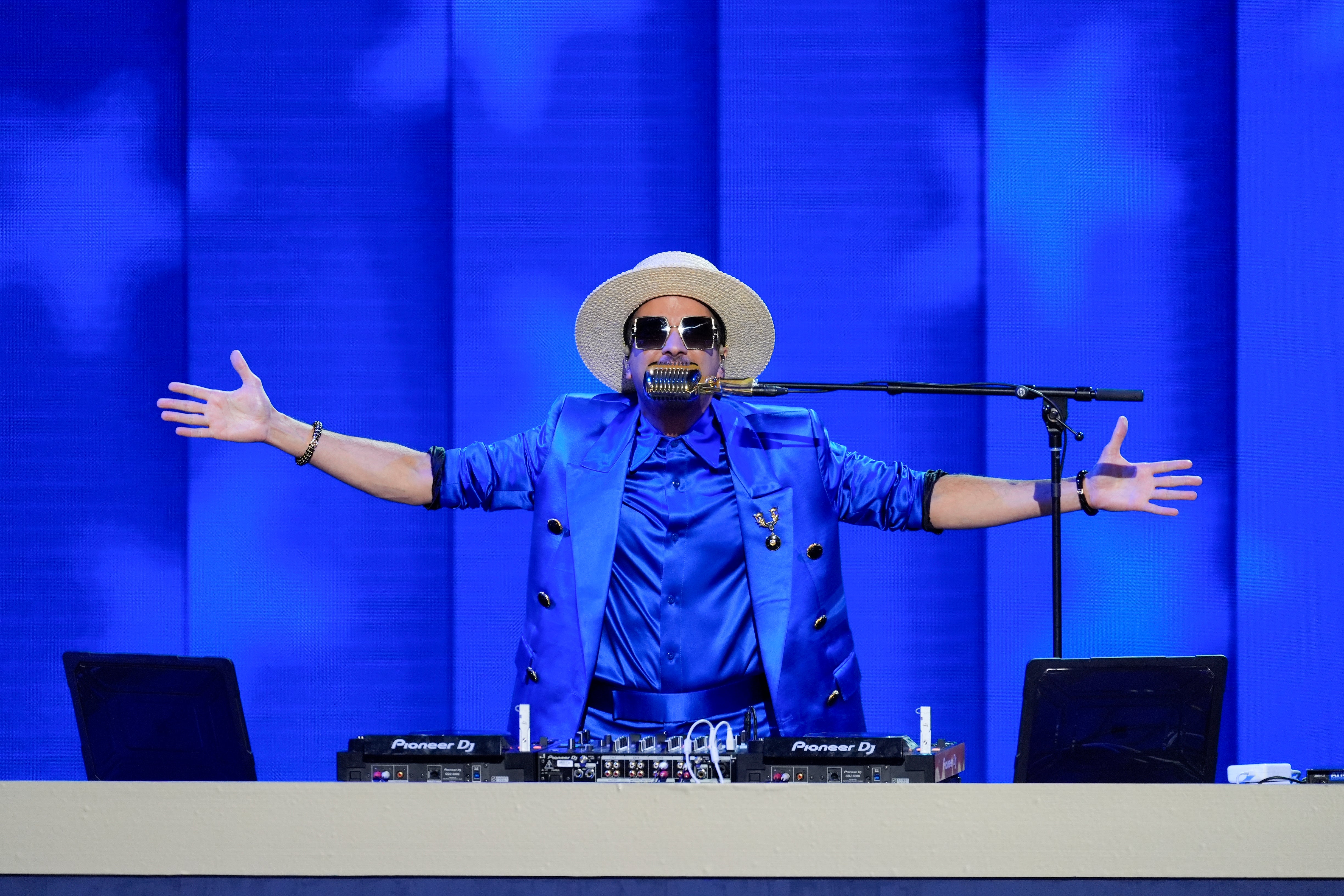[ad_1]
Music has been a powerful tool in Kamala Harris’s race for US presidency, experts have said, as they reflected on the Democratic candidate’s campaign against Donald Trump.
Harris has received backing from some of pop’s biggest stars, including Taylor Swift, Beyoncé, Bruce Springsteen, Billie Eilish, Bad Bunny, Eminem, Cardi B and Madonna.
But experts have also singled out the way Harris and her team have used music as a narrative tool, from the celebratory DNC roll call to their official campaign song, “Freedom” by Beyoncé.
At the DNC roll call, Harris’s team enlisted DJ Cassidy – who has previously performed at events for former US president Barack Obama – curated a setlist to introduce each state with a relevant song. This included “Sweet Home Alabama” by Lynyrd Skynyrd for the state of Alabama, “Lose Yourself” by Detroit native Eminem, and “Kiss” by Prince, who hailed from Minnesota.
“The thing that really struck me was the concept of turning the roll call into a [kind of] concert, [so there was an] atmosphere with higher points of energy,” Loren Kajikawa, associate professor of musicology at George Washington University, told The Independent.
He added: “[It’s the sort of atmosphere you witness at sporting events, when the crowd kind of becomes one, and you kind of feel part of something larger than yourself. Music does that.”

Kajikawa also noted the urgency for Harris to “introduce herself” to voters, given the vice president entered the race to the White House in July this year, after president Joe Biden suspended his own campaign.
He compared Harris’s use of music to Obama’s, “especially when he was trying to really establish himself as a viable candidate who could represent all of America”.
“There’s some overlap between the Obama playlist and the Harris playlist, from songs that appeal to older voters to the ones that chime in with Generation X and younger,” he said. “If you think about why Biden dropped out – he was not exciting to younger voters. Harris is very much going for the jugular on that.”
Enjoy unlimited access to 100 million ad-free songs and podcasts with Amazon Music
Sign up now for a 4 month free trial (3 months for non-Prime members)
Enjoy unlimited access to 100 million ad-free songs and podcasts with Amazon Music
Sign up now for a 4 month free trial (3 months for non-Prime members)

Harris notably jumped on the “Brat summer” wagon, one of the biggest social media trends of 2024, after British pop star Charli XCX – who coined the phrase – shared a post to X/Twitter: “Kamala IS Brat.”
She has also used popular songs from Gen-Z artists such as Chappell Roan and Sabrina Carpenter, two of the biggest breakout stars of the year thanks to hits such as “Femininomenon” and “Espresso”, respectively.
“I think it was a really smart choice to not only have a DJ, but to even then utilise popular songs to galvanise [voters], creating this party atmosphere to being a lot of enthusiasm to what [a few months ago] was a really dark and dim moment in the Democratic party,” Imani M Cheers, an Associate Professor of Digital Storytelling at George Washington University, said.
She was less convinced about the impact actual endorsements from pop stars – including from Swift and Beyonce – would have on the Harris campaign, which The Independent’s David Lister wrote about this week.
“We give celebrities in the US a lot of clout, but I don’t think when it really boils down to voting on a particular issue or for a particular candidate, that having a celebrity endorsement is going to then push you into supporting that candidate if you already weren’t,” she said.

Cheers did note that Swift, who hails from the crucial swing state of Pennsylvania, has a record of encouraging voter participation. In September, she officially announced her support of Harris in an Instagram post in September and encouraged her 284 million followers to register to vote – her subsequent Instagram story with a link to the vote.gov site drew 337,826 visitors.
“I think the main way that music aids a campaign is it helps construct a sense of presidential identity,” Kajikawa said. “It places the candidate in relation to their constituents… people identify very strongly with music, because the music we like is an expression of our identity. And so music is a very effective way for presidential candidates to make connections with different groups of people.”
Trump, in contrast to Harris, has struggled with playlists for his campaign rallys due to the tendancy among liberal artists to file cease and desist orders to prevent him from using their songs.
The list of musicians objecting to Trump using their songs is now so extensive that it has its own Wikipedia page.
[ad_2]
READ SOURCE















